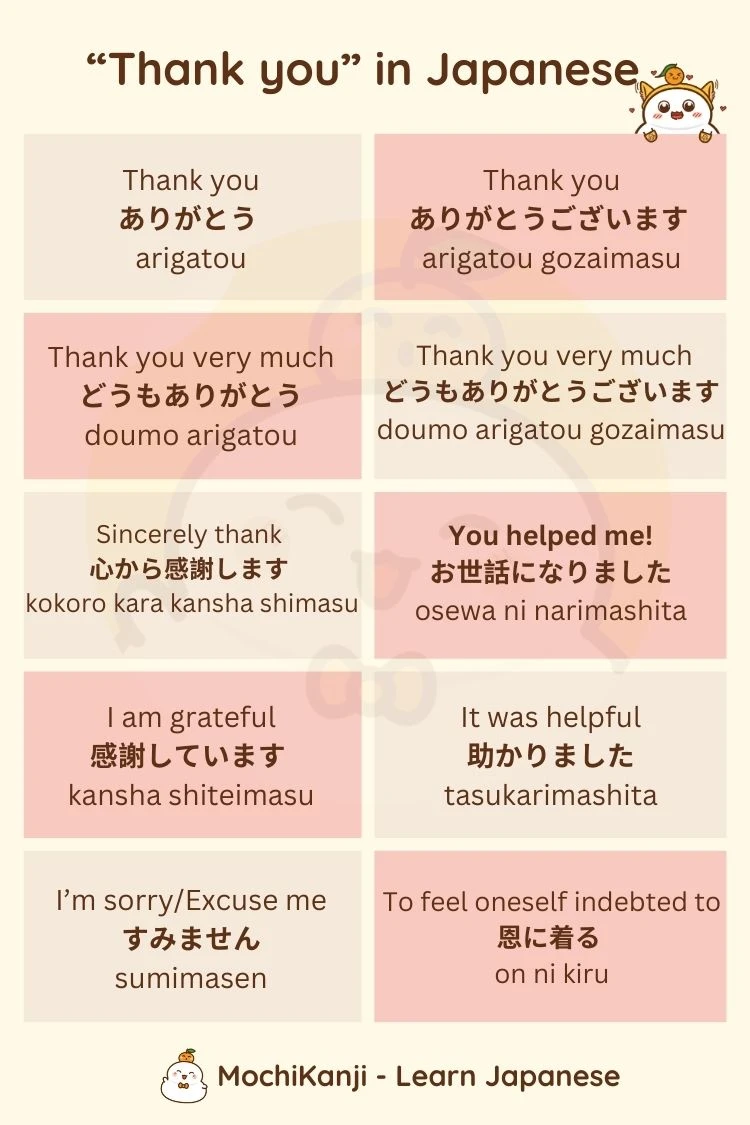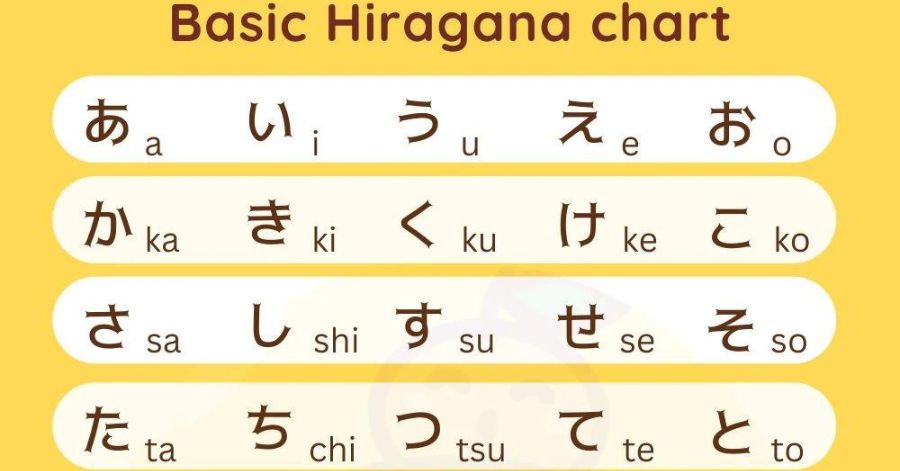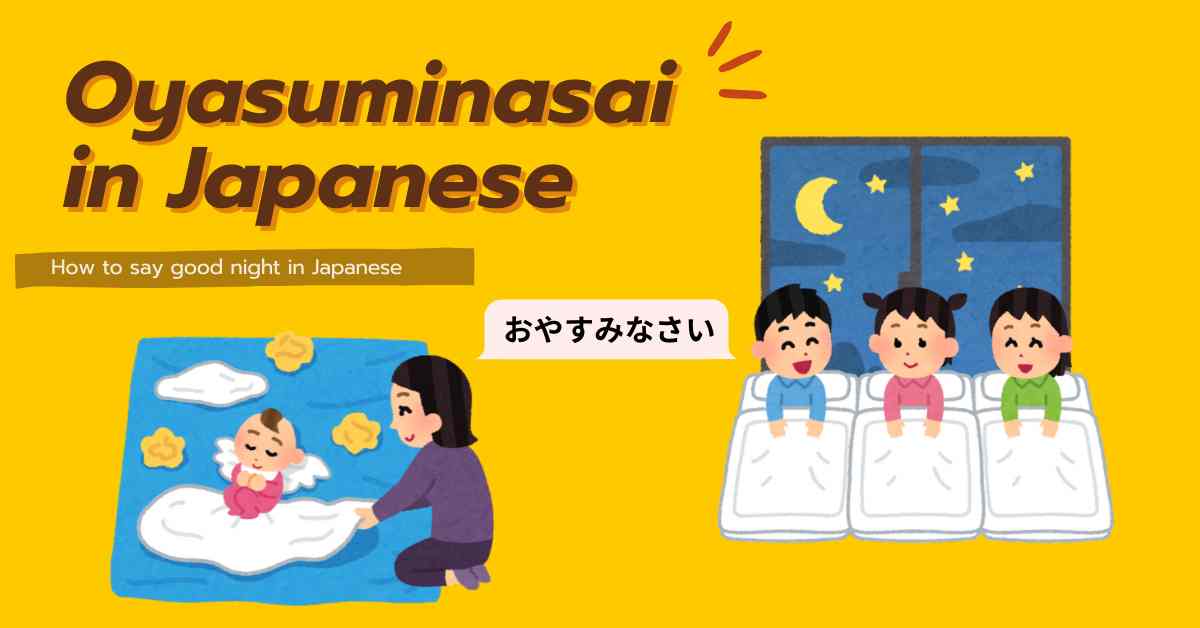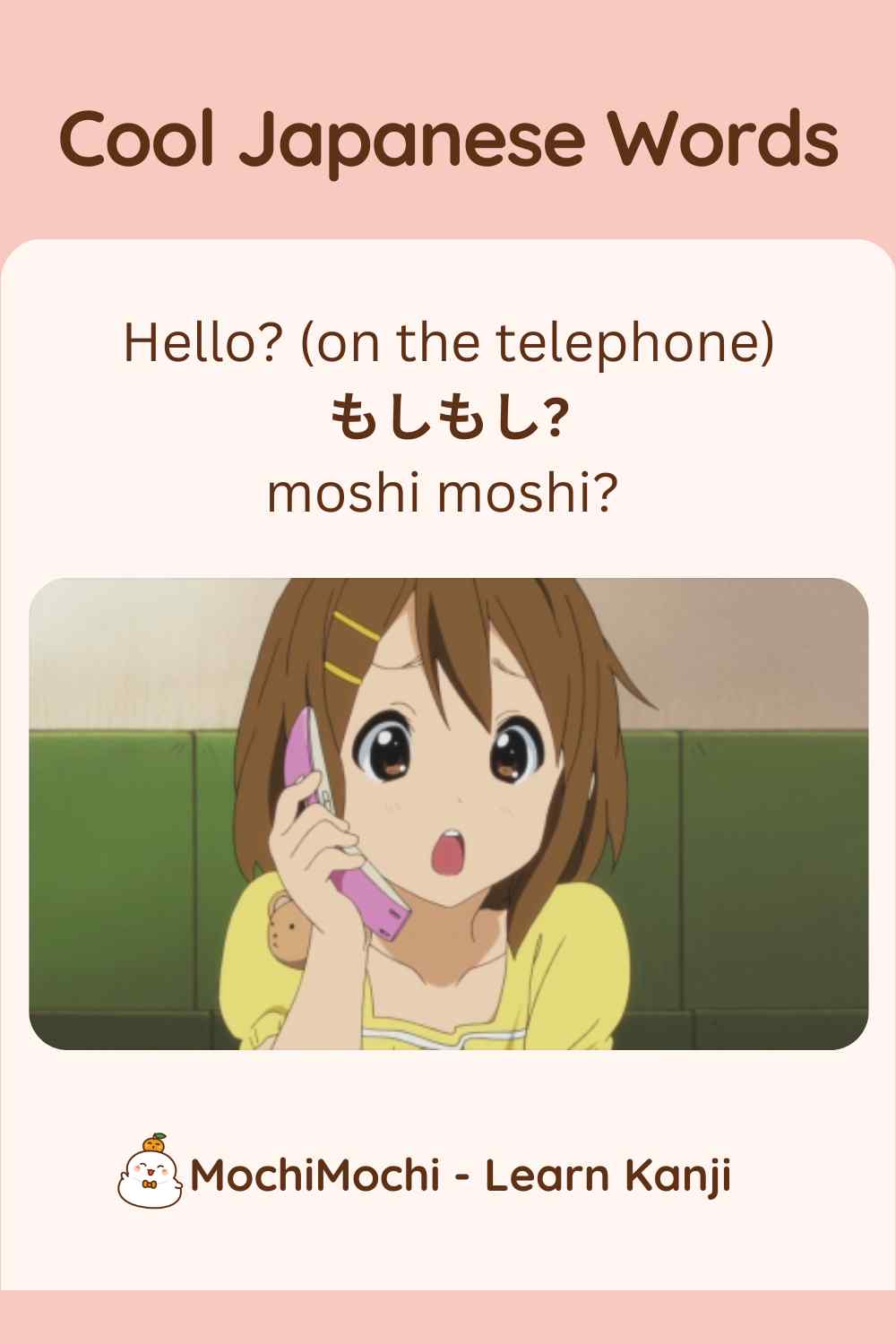In Japanese, the common way to say “thank you” is ありがとう (Arigatou). You definitely familiar with this phrase, which is used commonly in Japanese conversation. In this guide, however, we’ll show 10 other ways to say thank you in Japanese, each suitable for different contexts and levels of formality:

1. ありがとう – Arigatou
- Meaning: Thank you
- Romaji: Arigatou
This is perhaps the most universally recognized Japanese phrase for thank you. It’s casual and broadly used among friends, family, and peers. This version of thanks is informal and should generally be used in a relaxed context or with people you are familiar with.
2. ありがとうございます – Arigatou Gozaimasu
- Meaning: Thank you
- Romaji: Arigatou Gozaimasu
Stepping up a level in formality, this expression is a polite way to say thank you. It’s appropriate in almost any situation but is especially important in customer service interactions or when speaking to someone of higher status. This phrase carries a sense of professional and courteous acknowledgment.
3. どうもありがとう – Doumo Arigatou
- Meaning: Thank you very much
- Romaji: Doumo Arigatou
By adding どうも (doumo), you increase the emphasis of your gratitude, translating roughly to “Thank you very much.” It’s still fairly informal and can be used in everyday situations where you feel a simple thanks might not suffice.
4. どうもありがとうございます – Doumo Arigatou Gozaimasu
- Meaning: Thank you very much
- Romaji: Doumo Arigatou Gozaimasu
This is a combination of politeness and strong gratitude. It’s very respectful and can be used in formal settings or when you are deeply grateful for someone’s help or generosity. This phrase would be apt after receiving a significant favor or in professional settings where high respect is to be conveyed.
5. 心から感謝します – Kokoro Kara Kansha Shimasu
- Meaning: Sincerely thank
- Romaji: Kokoro Kara Kansha Shimasu
Literally translating to “I thank you from the heart,” this phrase is used when you want to express sincere and deep gratitude. It’s formal and profound, making it suitable for expressing thanks in serious or deeply meaningful situations, such as receiving personal advice or after a significant personal event.
6. お世話になりました – Osewa Ni Narimashita
- Meaning: Thank you for helping me
- Romaji: Osewa Ni Narimashita
This phrase is often used to thank someone for their assistance or care over a period. It’s common in business and professional contexts, particularly when concluding a project or at the end of a business relationship. It acknowledges the person’s support and effort in assisting you.
7. 感謝しています – Kansha Shiteimasu
- Meaning: I am grateful
- Romaji: Kansha Shiteimasu
This formal statement is often used in written communications like emails or letters where deep appreciation needs to be conveyed. It’s particularly useful in professional communications, reflecting both humility and respect.
8. 助かりました – Tasukarimashita
- Meaning: You helped me
- Romaji: Tasukarimashita
This phrase means “You helped me,” and is used when someone has helped you out of a difficult situation. It’s an expression of gratitude that acknowledges someone’s direct impact on your life or work, often used among colleagues or friends.
9. 恩に着る – On ni Kiru
- Meaning: To feel oneself indebted to
- Romaji: On ni Kiru
This is a very formal and somewhat archaic way to say thank you, implying that you are indebted to someone for their kindness. While not commonly used in everyday conversation, it might appear in very formal writings or speeches, often to express a deep, lasting gratitude.
10. すみません – Sumimasen
- Meaning: “excuse me” or “I’m sorry”
- Romaji: Sumimasen
Although primarily used to mean “excuse me” or “I’m sorry,” in the right context “sumimasen” can also express gratitude. This is particularly true when someone goes out of their way to help you, and you wish to acknowledge both the imposition and their effort. It’s a versatile phrase, suitable in many contexts and reflecting an acute awareness of the other person’s convenience.
If you want to learn more Japanese phrases, give the MochiKanji app a try! The app includes some basic conversation topics that suit those who want to practice speaking Japanese everyday, or download this image for learning later.
In conclusion, mastering these various expressions of gratitude can make a significant difference in how you communicate and connect with Japanese speakers. Whether you’re a beginner or looking to polish your proficiency, integrating these phrases into your daily use will demonstrate both respect and appreciation for Japanese culture and its nuances.





